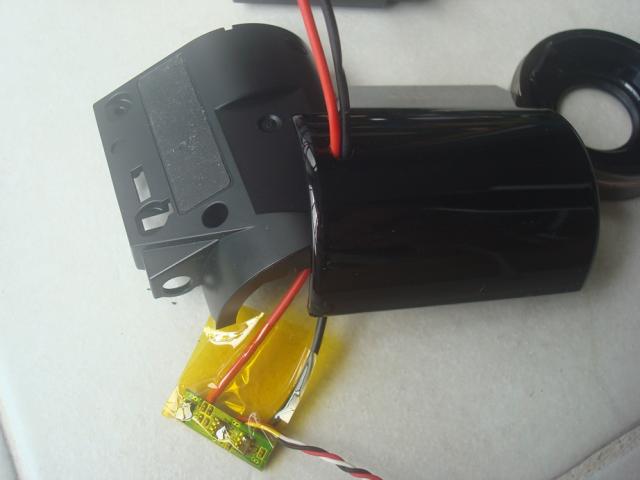Search the Community
Showing results for tags 'in-car'.
-
SAN FRANCISCO - Tesla has assured its millions of electric car owners that their privacy “is and will always be enormously important to us”. The cameras it builds into vehicles to assist driving, it notes on its website, are “designed from the ground up to protect your privacy”. But between 2019 and 2022, groups of Tesla employees privately shared, via an internal messaging system, sometimes highly invasive videos and images recorded by customers’ car cameras, according to interviews by Reuters with nine former employees. Some of the recordings caught Tesla customers in embarrassing situations. One former employee described a video of a man approaching a vehicle completely naked. Also shared were crashes and road-rage incidents. One crash video in 2021 showed a Tesla being driven at high speed in a residential area and hitting a child riding a bike, according to another former employee. Other images were more mundane, such as pictures of dogs and funny road signs that employees made into memes by embellishing them with amusing captions or commentary, before posting them in private group chats. While some postings were shared between only two employees, others could be seen by scores of them, according to several former employees. Tesla states in its online “Customer Privacy Notice” that its “camera recordings remain anonymous and are not linked to you or your vehicle”. But seven former employees told Reuters the computer programme they used at work could show the location of recordings – which potentially could reveal where a Tesla owner lived. One former employee also said that some recordings appeared to have been made when cars were parked and turned off. Several years ago, Tesla would receive video recordings from its vehicles even when they were turned off, if owners gave consent. It has since stopped doing so. “We could see inside people’s garages and their private properties,” said another former employee. “Let’s say that a Tesla customer had something in their garage that was distinctive, you know, people would post those kinds of things.” Tesla did not respond to detailed questions sent to the company for this report. To report this story, Reuters contacted more than 300 former Tesla employees who had worked at the company over the past nine years and were involved in developing its self-driving system. More than a dozen agreed to answer questions, all speaking on condition of anonymity. Reuters was not able to obtain any of the shared videos or images, which former employees said they had not kept. The news agency also was not able to determine if the practice of sharing recordings, which occurred within some parts of Tesla as recently as 2022, continues today or how widespread it was. Some former employees contacted said the only sharing they observed was for legitimate work purposes, such as seeking assistance from colleagues or supervisors. The sharing of sensitive videos illustrates one of the less-noted features of artificial intelligence systems: They often require armies of human beings to help train machines to learn automated tasks such as driving. Since about 2016, Tesla has employed hundreds of people in Africa and later the United States to label images to help its cars learn how to recognise pedestrians, street signs, construction vehicles, garage doors and other objects encountered on the road or at customers’ houses. To accomplish that, data labellers were given access to thousands of videos or images recorded by car cameras that they would view to identify objects. Two former employees said they were not bothered by the sharing of images, saying that customers had given their consent or that people long ago had given up any reasonable expectation of keeping personal data private. Three others, however, said they were troubled by it. One said: “I’m bothered by it because the people who buy the car, I don’t think they know that their privacy is, like, not respected... We could see them doing laundry and really intimate things. We could see their kids.” One former employee saw nothing wrong with sharing images, but described a function that allowed data labellers to view the location of recordings on Google Maps as a “massive invasion of privacy”. Associate Professor David Choffnes, executive director of the Cybersecurity and Privacy Institute at Northeastern University in Boston, called the sharing of sensitive videos and images by Tesla employees “morally reprehensible”. He noted that circulating sensitive and personal content could be construed as a violation of Tesla’s own privacy policy – potentially resulting in intervention by the US Federal Trade Commission (FTC), which enforces federal laws relating to consumers’ privacy. An FTC spokesman said it does not comment on individual companies or their conduct. To develop self-driving car technology, Tesla collects a vast trove of data from its global fleet of several million vehicles. The company requires car owners to grant permission on the cars’ touchscreens before Tesla collects their vehicles’ data. “Your data belongs to you,” states Tesla’s website. In its customer privacy notice, Tesla explains that if a customer agrees to share data, “your vehicle may collect the data and make it available to Tesla for analysis. This analysis helps Tesla improve its products, features, and diagnose problems quicker.” It also states that the data may include “short video clips or images”, but is not linked to a customer’s account or vehicle identification number, “and does not identify you personally. https://www.straitstimes.com/world/tesla-workers-shared-sensitive-images-recorded-by-customer-cars?utm_campaign=stfb&utm_medium=social&utm_source=facebook
-
There’s nothing in the world quite so cynical as advertising. Most of us just accept it as a fact of life, which it is. For some of us there’s always a little growl of annoyance at the back of our minds whenever we’re forced to put up with someone trying to sell us something. On one hand, a reasonable decision has to be that anyone selling anything needs to make consumers aware of what’s available. You can’t always rely on buyers to actively seek you out. Advertising is fair enough, on that basis. On the other hand there have always been limits to how pervasive this commercial intrusion into our lives can get. Roadside billboards, radio ads, TV ads and printed ads are a passive attempt to engage with people with money to spend. They’re fine. You don’t have to pay attention if you don’t want to, even though lots of people do nonetheless. No one can argue that you don’t sometimes gain useful information from advertising. It’s good to know, for example, that there’s a car parts shop half an hour’s drive from your house that you didn’t know about, and never would have known about if not for advertising. On the other hand, the age of connected devices has brought with it a very different type of advertising. We’re talking about pop-ups, banner ads that are impossible to close down, and pre/mid-roll on videos. These are the commercial realities of the digital age. Advertising helps keep publications like this running, so it would be mighty hypocritical of us to call it all bad. But it’s about to get worse. This week we learned of a system built by an American company called Telenav. It will allow advertisers to pipe their commercials directly to your car’s media screen when the car is stationary. Adverts you never asked for and never agreed to accept. This, we have a problem with. Adverts will be delivered either under threat of financial penalties if you don’t ‘choose’ to watch them, or with a bribe-shaped discount on the cost of your connected car services if you do watch them. It depends on which way you want to look at it. A Telenav spokesperson said: With technology already able to check which way your face is turned and which way your eyes are looking, the car could know whether you’re watching these commercials or not. It may even pause them if you look away, or refuse to let you access the net until you’ve watched the whole advert(s). Forgive me if I’m being over-dramatic, but that sounds like being held to ransom in your own car. Your car is your personal space. It’s a private cocoon that you keep exactly the way you want it. You make it look the way you want, you make it sound the way you want and you make it feel the way you want. Your choice of model alone is a reflection of who you are, even if the car itself is unmodified. It’s yours, and only you should get to decide what goes on inside it.
- 9 replies
-
- advertising
- in-car
- (and 4 more)
-
Hi guys, Would any kind members know off or came across any audioshop that does BOSE sound systems for cars?
- 21 replies
-
- bose
- soundsystem
-
(and 3 more)
Tagged with:
-
Hi! Do anyone here use the Eonon In car entertainment system? Any reviews for the system? http://www.eonon.com/ I saw quite a few great reviews on Youtube and I realised all of them are actually Caucasians. Seems like Eonon is still not that popular in Asia even though its a Hong Kong Company. Price wise, its not exactly cheap, but with all the functions in place, it seems pretty value for the money you spent! I recently got a Android Set (GA5151W) from them and the shipment should arrive by this week! Will show you guys some photos of it after i get it installed!
-
I've BlackVue on the front windscreen. Isit necessary to install another set at the rear just incase someone kiss your bumper and you've solid proof to show your insurance for damages claim. Anyone done before?
- 1,930 replies
-
- 4
-

-
So my Finevu CR300HD and CR500HD battery went dead. Thatz the normal thing for Finevu car cameras with lithium polymer batteries. After reading dashcam forum on how others replace their battery, I going to replace mine my way. I was thinking, since the lithium polymer will be dead in one year's time, why not just solder a connect and replace the battery externally. Much easier than open up the camera again. So my journey starts : Forum read was here : https://dashcamtalk.com/forum/threads/problem-with-the-finevu-cr-300hd-internal-battery.1083/ Detailed instructions of how to strip the camera here : http://www.blackboxmycar.com/blogs/news/10846777-battery-replacement-instruction I opened up mine as per above instructions. Remove the battery, de-solder the circuit board from the battery and solder the JST connector wires. Using my dremel, I drilled a nice clean hole thru the two casings.
-
Dear All, Does anyone has lobang to install blackvue (2Ch) camera for front and rear? Thanks
- 135 replies
-
- 2
-

-
Not bad if it works well. A good alternative for car cameras. The pro of using this over the in car camera is that no need to retrieve/transfer the video footage from your in car camera, since you can just submit from your smartphone. More importantly it's free and also no cumbersome installation. I think this is a must for all drivers, who do not have a in car camera installed. Do note that the app will only be launched this Friday, and available for both iOS and Android. Now the thing is, where can I find a good bracket to mount onto the windscreen?
- 24 replies
-
- 2
-

-
- car camera
- car app
-
(and 5 more)
Tagged with:
-
It may be a case of "you can run, but you can't hide" increasingly for motorists here, as the growing use of in-vehicle cameras helps the police track down errant drivers. The Traffic Police said it has received more videos of traffic violations recorded with these cameras, original videos of which can be submitted as evidence. It started tracking the number of such videos last year after noticing a higher frequency in submissions. By the end of last year, it had received about 1,000 of these clips. Observers say the trend can help make drivers more careful. Source: http://www.straitstimes.com/breaking-news/singapore/story/more-using-car-cams-help-track-traffic-offenders-20140303
- 21 replies
-
- 1
-

-
- in-car cameras
- using
- (and 6 more)
-
A recent application filed for technological trademarks by Toyota suggests that future customers will soon enjoy nifty in-car gadgets. This application is seen as a way for the Japanese auto firm to potentially increase their appeal towards tech-savvy consumers and also at the same time, to keep up with its rivals. A total of two trademarks were filed. First, a touch sensitive dashboard known as the "Intellitouch" and lastly, a wireless charging system for mobile devices known as the "EBIN". Touch sensitive displays are nothing new. Ford has their MyFord Touch System since 2010 and Cadillac has its CUE System. Toyota might go a step further than the above mentioned automakers and build a full touch sensitive dashboard for future models. The Intellitouch system will likely be used in conjunction with similar Toyota patent filings, including one called a "Reconfigurable Tactile Control System Display", which could give drivers multiple options for dash display setup. Knobs and buttons may soon vanish entirely from the centre console area. The second trademark application details a system called "EBIN" that was described as storage containers with built in inductive battery charges for handheld electronic devices. In short, EBIN will provide drivers with a specific storage spot for their mobile electronics that will also allow for wireless charging. Toyota has not revealed when we will see these two technologies introduced and also on which models will they be featured on first. Photo credit: Net Car Show
-
- new technology
- other news
- (and 10 more)
-
[extract] Most of us love to drink coffee and some of us (including me) just need to drink it in the morning just to give us a jolt. For drivers who need something like that, wouldn
-
- modifications
- new technology
- (and 11 more)














